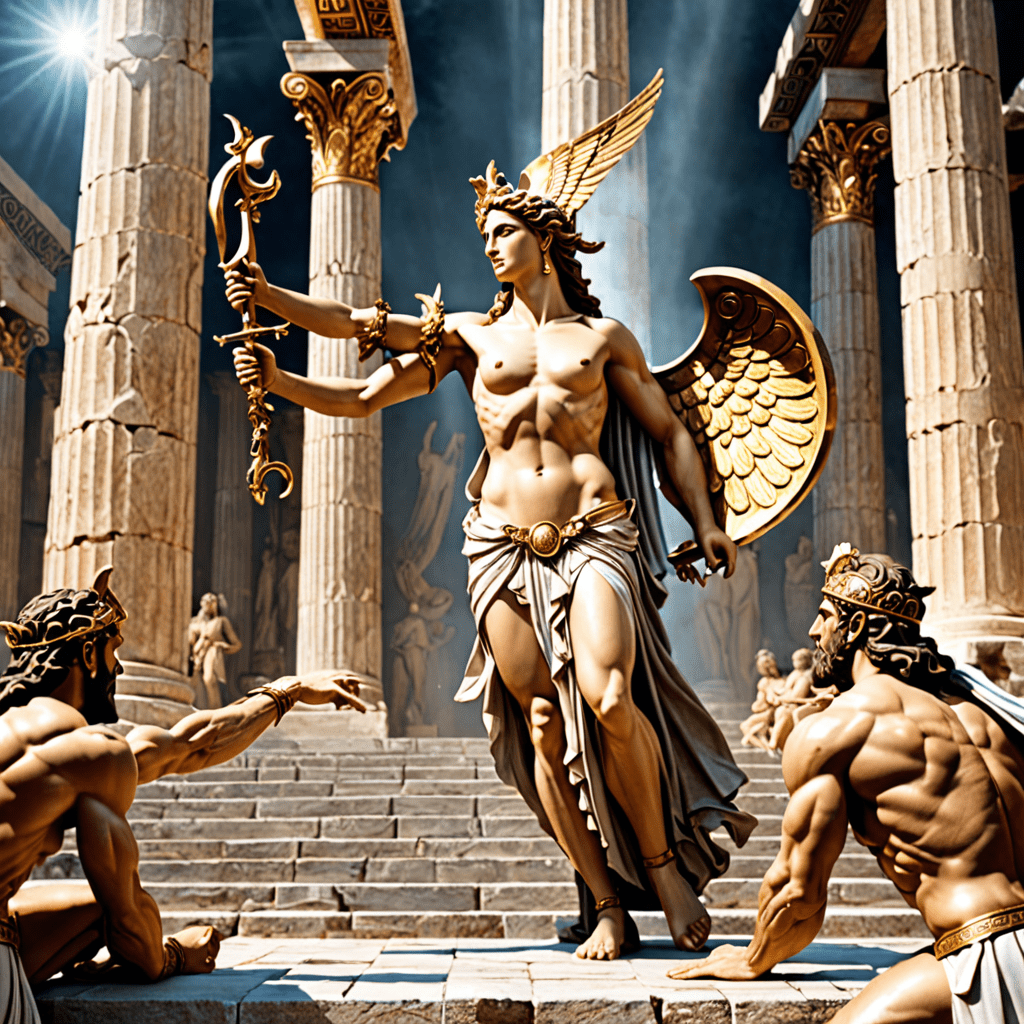The Symbolism of Echoes in Greek Mythology
In Greek mythology, echoes are not merely repetitions of sound, but hold deeper symbolic significance that enrich the stories and legends of ancient Greece. Let’s explore the intriguing symbolism of echoes in the realm of Greek mythology.
1. Echo in Mythological tales:
One of the most famous portrayals of Echo in Greek mythology is related to the story of Echo and Narcissus. Echo, a nymph known for her loquaciousness, incurred the wrath of the goddess Hera, who cursed her to only repeat the last words spoken to her. This curse led to Echo’s inability to express her love for Narcissus, resulting in a poignant tale of unrequited love.
2. Symbolism of Echo:
In mythology, the echo is often seen as a symbol of reflection, a mirror to one’s own words and intentions. It serves to remind individuals of the power of their own voice and the consequences of their actions and words. The repetitive nature of echoes can also represent the cyclical nature of life and the concept of karma.
3. Communication with the Divine:
Additionally, echoes in Greek mythology can symbolize communication with the divine or supernatural realms. It was believed that echoes were the voices of nymphs or spirits hidden in the mountains or caves, enhancing the mystical and ethereal qualities associated with these natural phenomena.
4. Interpretation and Meaning:
Interpreting echoes in Greek mythology can lead to insights into the themes of communication, reflection, karma, and the interconnectedness of individuals with the natural and supernatural worlds. Understanding the symbolism of echoes enriches our appreciation of ancient Greek tales and their enduring relevance in our lives today.
FAQ: The Symbolism of Echoes in Greek Mythology
What is the significance of echoes in Greek mythology?
Echoes in Greek mythology are often seen as symbolic of repetition, reflection, and the consequences of words and actions echoing through time. In various myths, echoes represent communication with the divine or serve as a metaphor for how our words and deeds reverberate in the world.
Which Greek myth prominently features the concept of echoes?
One of the most well-known Greek myths involving echoes is the story of Echo and Narcissus. Echo’s inability to speak freely and Narcissus’ self-absorption result in tragic consequences, highlighting the themes of unrequited love, communication, and the enduring impact of one’s voice.
How do echoes symbolize the power of words in Greek mythology?
Echoes in Greek mythology symbolize the potency and lasting effects of words. They serve as a reminder that what we say and how we communicate can have profound consequences, shaping relationships, destinies, and even the fabric of reality itself in the ancient Greek worldview.



